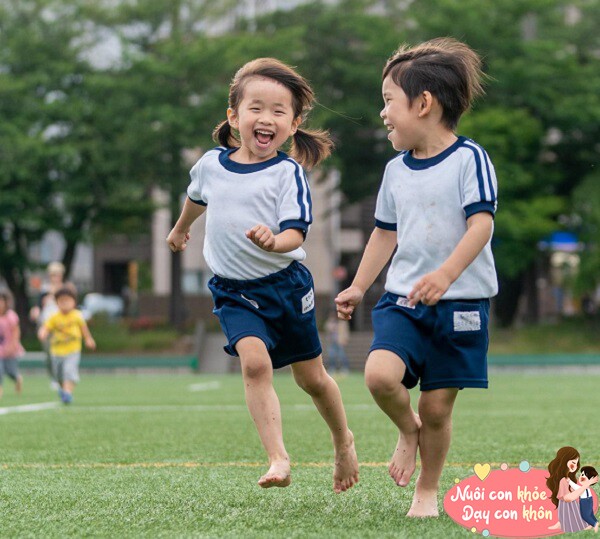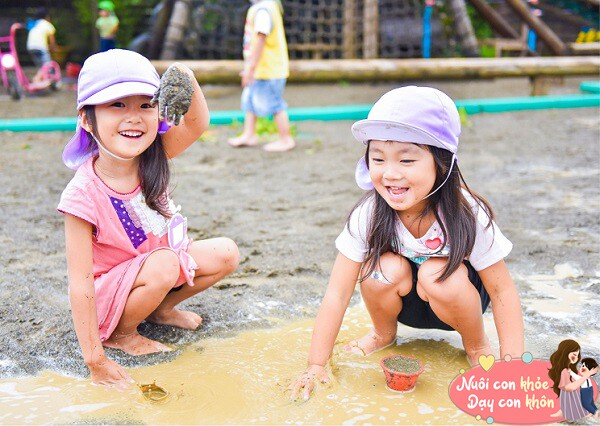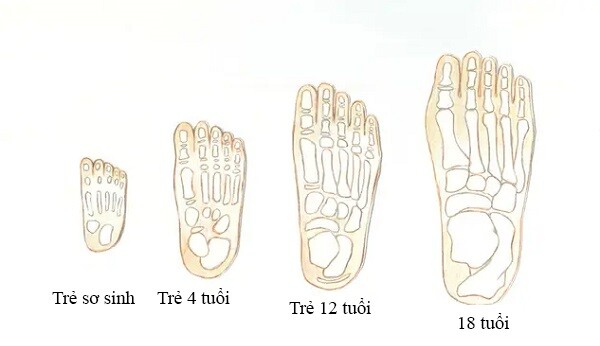While we may not notice significant changes at first, several studies have shown that going barefoot offers numerous benefits for children, and these can become more apparent over the next four years, including differences in physical development, cognitive abilities, and arch formation.

Sensory Development
The human foot has approximately 200,000 nerve endings. Going barefoot provides children with a variety of tactile sensations and daily sensory stimulation.
Whether it’s the coolness of tiles, soft grass, warm sand, or pebbled beaches, these varied textures offer unique sensations and stimulation.
This sensory input is transmitted to the brain and body through the soles of the feet, promoting sensory integration and development.

Going barefoot provides better sensory stimulation.
This process is akin to constructing a “superhighway” of connections between the body and the brain. When our senses are stimulated, the brain immediately processes the information and sends appropriate responses, allowing us to react accordingly.
For instance, if we touch a hot kettle, our hand (touch) instantly relays this to the brain. After analysis, the brain detects danger and instructs us to pull away, triggering a swift reflex action.
Stronger sensory integration in children leads to improved coordination, balance, and physical confidence. This, in turn, boosts their self-esteem as they can independently perform tasks, react swiftly in daily activities and learning, and coordinate well with peers during play.

Brain Development
A child’s brain development heavily relies on external stimulation. Rich sensory experiences during childhood promote brain development and enhance spatial awareness.
Among the myriad sensory stimuli, touch is particularly crucial for children to connect with their environment, and stimulation from the soles of their feet is often overlooked.

Regularly going barefoot promotes blood circulation.
Each time a child goes barefoot, their rapidly developing brain receives new stimulation, encouraging the formation of new neural connections and pathways, leading to a more efficient brain.
Additionally, going barefoot regularly can act like a foot massage, improving blood circulation, enhancing metabolism, and helping children release accumulated stress during their growth. Stable emotions from an early age contribute to better focus and concentration.

Arch Formation
A well-formed arch can better absorb shock, transfer weight, and provide propulsion during exercise, reducing foot fatigue, maintaining balance, and lowering the risk of injury.
Research published in the Journal of Footwear Science found that children who regularly wore socks and shoes from a young age tended to have flatter feet and poorer balance and body coordination than those who went barefoot or ran barefoot.
Infants typically don’t have arches in their feet, and these need to develop as they start walking. Insufficient arch development can lead to flat feet. The soles of infant feet have numerous nerve endings, and going barefoot can activate, strengthen, and promote arch formation.

The first four years after birth are crucial for arch formation. At six months old, most of the foot bones are still cartilage. Around age three, the final bones begin to develop, and by age four, the foot shape, muscle tone, and arch development become more established.
Therefore, before the age of four, provided it’s safe to do so, encourage your child to go barefoot appropriately, allowing them to better explore their surroundings.
The deeper the connection between a child’s feet and the world, the better they understand their bodies and brains. Over time, they’ll develop stronger arches, improved physical strength, and enhanced cognitive abilities, setting them up for comfort and success in various sports later in life.
However, it’s essential for parents to ensure a safe environment when their children go barefoot, avoiding places with sharp objects or other hazards that could injure their feet.
The Golden Window: Unlocking Your Child’s IQ Potential
Understanding the three golden stages of a child’s IQ development empowers parents to make informed decisions regarding their child’s future. By recognizing these crucial periods, parents can provide the necessary support and guidance to ensure their child’s intellectual prowess and set them on a path to a bright and successful future.





































